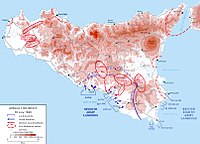
Blame everyone: Error-related devaluation in Eriksen flanker task.
Sign Up to like & getrecommendations! Published in 2017 at "Acta psychologica"
DOI: 10.1016/j.actpsy.2017.09.008
Abstract: Preferences are determined not only by stimuli themselves but also by the way they are processed in the brain. The efficacy of cognitive processing during previous interactions with stimuli is particularly important. When observers make… read more here.
Keywords: related devaluation; devaluation; flanker task; error related ... See more keywords

A cross-cultural examination of selective attention in Canada and Japan: The role of social context
Sign Up to like & getrecommendations! Published in 2018 at "Cognitive Development"
DOI: 10.1016/j.cogdev.2018.06.005
Abstract: Abstract Previous studies have found that East Asian children outperform Western children on executive function tasks; however, cultural differences may depend on the task demands. Particularly, East Asian children may have difficulties in regulating attention… read more here.
Keywords: selective attention; cross cultural; flanker; japanese children ... See more keywords

Characterizing anxiety subtypes and the relationship to behavioral phenotyping in major depression: Results from the EMBARC study.
Sign Up to like & getrecommendations! Published in 2018 at "Journal of psychiatric research"
DOI: 10.1016/j.jpsychires.2018.04.003
Abstract: The current study aimed to characterize the multifaceted nature of anxiety in patients with major depression by evaluating distinct anxiety factors. We then related these derived anxiety factors to performance on a Flanker Task of… read more here.
Keywords: depression; neuroticism worry; anxiety; study ... See more keywords

Attending to emotional faces in the flanker task: Probably much less automatic than previously assumed.
Sign Up to like & getrecommendations! Published in 2018 at "Emotion"
DOI: 10.1037/emo0000538
Abstract: Attention to emotional faces was tested in a series of 5 experiments using the flanker paradigm. Distraction and compatibility effects that were stronger for emotional compared to neutral faces were found in only one of… read more here.
Keywords: task; attending emotional; faces flanker; emotional faces ... See more keywords

Flanker task with equiprobable congruent and incongruent conditions does not elicit the conflict N2.
Sign Up to like & getrecommendations! Published in 2018 at "Psychophysiology"
DOI: 10.1111/psyp.12980
Abstract: In many published studies, various modifications of the flanker task have been used. Regardless of the flanker task version, the conflict N2 component has been consistently reported and interpreted as evidence for the resolution of… read more here.
Keywords: conflict; flanker task; conflict component;

Optimizing assessments of post-error slowing: A neurobehavioral investigation of a flanker task.
Sign Up to like & getrecommendations! Published in 2019 at "Psychophysiology"
DOI: 10.1111/psyp.13473
Abstract: Appropriately adjusting to errors is essential for adaptive behavior. Post-error slowing (PES) refers to the increased reaction times on trials following incorrect relative to correct responses. PES has been used as a metric of cognitive… read more here.
Keywords: task; error; error slowing; post error ... See more keywords

Electrophysiological correlates of proportion congruency manipulation in a temporal flanker task.
Sign Up to like & getrecommendations! Published in 2022 at "Psychophysiology"
DOI: 10.1111/psyp.14092
Abstract: Response conflict evoked by a distractor stimulus object in interference tasks is associated with longer reaction times and a pronounced ERP component referred to as the fronto-central N2. Increasing the proportion congruency (PC, i.e., the… read more here.
Keywords: distractor; flanker task; proportion; temporal flanker ... See more keywords

Flanker Task-Elicited Event-Related Potential Sources Reflect Human Recombinant Erythropoietin Differential Effects on Parkinson's Patients
Sign Up to like & getrecommendations! Published in 2020 at "Parkinson's Disease"
DOI: 10.1155/2020/8625794
Abstract: We used EEG source analysis to identify which cortical areas were involved in the automatic and controlled processes of inhibitory control on a flanker task and compared the potential efficacy of recombinant-human erythropoietin (rHuEPO) on… read more here.
Keywords: erythropoietin; task; event related; related potential ... See more keywords

Effects of Cognitive Training in Flanker Task on Mobility of Older Adults: A Randomized Controlled Trail.
Sign Up to like & getrecommendations! Published in 2023 at "Gerontology"
DOI: 10.1159/000529088
Abstract: INTRODUCTION Cognitive function is considered to be correlated with the older adults' mobility. Flanker task, reflecting the conflict resolution, is barely explored as a simple approach to train the elderly's cognitive function. Hence, the first… read more here.
Keywords: training; intervention; flanker task; mobility ... See more keywords

Attentional bias during emotional processing: Behavioral and electrophysiological evidence from an Emotional Flanker Task
Sign Up to like & getrecommendations! Published in 2021 at "PLoS ONE"
DOI: 10.1371/journal.pone.0249407
Abstract: Threatening stimuli seem to capture attention more swiftly than neutral stimuli. This attention bias has been observed under different experimental conditions and with different types of stimuli. It remains unclear whether this adaptive behaviour reflects… read more here.
Keywords: attention; emotional flanker; flanker task; response ... See more keywords

The Association between Parenting Behavior and Executive Functioning in Children and Young Adolescents
Sign Up to like & getrecommendations! Published in 2017 at "Frontiers in Psychology"
DOI: 10.3389/fpsyg.2017.00472
Abstract: Executive functioning (EF) is associated with various aspects of school achievement and cognitive development in children and adolescents. There has been substantial research investigating associations between EF and other factors in young children, such as… read more here.
Keywords: task; association parenting; parenting behavior; executive functioning ... See more keywords